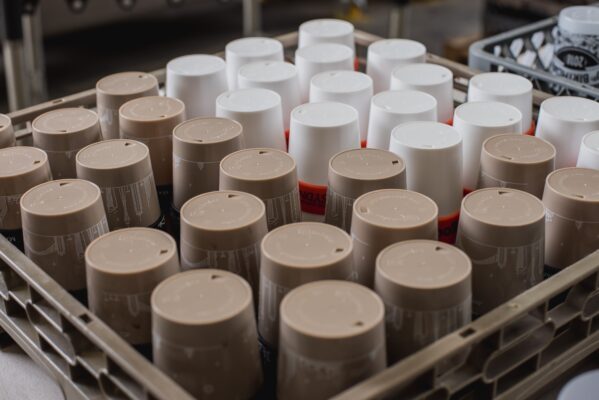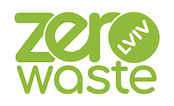We want to discuss with you a very important and hot topic – the safety of reusable cups.
In order to answer these questions, we use the recommendations of the Federal Institute for Risk Assessment (BfR, Germany).
Can SARS-CoV-2 coronavirus be transmitted through utensils and cutlery in canteens and other catering establishments?
Generally, the virus can get on cutlery or utensils when an infected person sneezes or coughs on them, and can survive on these solid surfaces for some time. Infecting is possible only when the virus is transmitted directly to the mucous membranes of the nose, eyes, mouth and throat through cutlery or hands. However, the BfR has not yet recorded any SARS-CoV-2 infecting through this transmission route.
Conclusion: Infection is possible but unlikely, and no cases have been reported.
Is the virus neutralized if you wash the dishes by hand or in the dishwasher?
Like all enveloped viruses, the genetic material of which is enclosed in a layer of fat (lipid membrane), coronaviruses are sensitive to fat-soluble substances, such as alcohols and surfactants. Although there are no specific data on SARS-CoV-2, these substances are likely to damage the viral envelope and neutralize the virus. Especially if the dishes are washed and dried in a dishwasher at a temperature of 60 degrees Celsius and above.
Conclusion: If you wash and dry reusable cups in a dishwasher at a temperature above 60 degrees Celsius, then no virus is all that scary to us.

Can coronavirus be transmitted through beverage containers in catering establishments and lead to respiratory infections?
BfR has not yet recorded cases of this route of infection. In the current outbreak of SARS-CoV-2, the transmission route through the esophagus and stomach is not common. The main transmission arises from airborne infection which occurs through coughing and sneezing of an infected person and is absorbed by other people through the mucous membranes of the respiratory tract, as well as the eyes, nose or mouth.
Infecting through beverage containers, such as drinking glasses, in catering can occur through the use by an infected person causing the virus to land on the glass through the hands or saliva. Transmission to another person through contact of the mucous membrane with the glass can theoretically occur, but only if such a dish is not thoroughly cleaned. To date, no cases of SARS-CoV-2 infection through this transmission route have been reported.
Conclusion: If reusable cups are properly cleaned, the virus is not transmitted from one person to another. As we remember, the required temperature is above 60 degrees Celsius. Today the dishwashing standard in restaurants and cafes is 93-96 degrees Celsius.

Have studies been done on the effectiveness of virus inactivation when washing beverage containers?
For a related SARS-coronavirus in a laboratory research it was shown that processing with a commercially available detergent for 5 minutes at room temperature led to complete inactivation of the virus. Longer processing times and higher temperatures can improve the inactivation of the virus. Washing beverage containers in a dishwasher or glass washing machine at 60 degrees Celsius or higher is particularly effective.
And the last question to you: do you know how and in what conditions disposable coffee cups were produced, transported and stored? And are they safe?
We will leave this question open.
The text contains a link to the full text of the BfR recommendations. Just in case you know German and want to read the original. As well as a link to the study (this one is in English). Therefore, read all of the above and draw your own conclusions. We’ve already drawn ours: reusable means safe. And as in all other areas of life, everything depends on proper hygiene ☺


 UA
UA